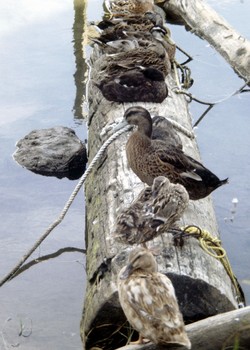Mar 8 2005
 The World Health Organization (WHO) said yesterday four new cases of human avian influenza have been reported in Vietnam. These include a 21-year-old man and his 14-year-old sister.
The World Health Organization (WHO) said yesterday four new cases of human avian influenza have been reported in Vietnam. These include a 21-year-old man and his 14-year-old sister.
WHO said the man died but the status of his sister and the two other people affected is unknown. They became ill in early or mid-February. Whether a 26-year-old nurse admitted to a hospital in Hanoi last week has avian influenza is uncertain although a WHO official said the nurse tested positive for the virus.
Influenza A (H5N1), has killed hundreds of thousands of birds and at least 44 people in Southeast Asia in recent months. Dick Thompson, for the WHO, said the agency had no knowledge of the case. Their main concern is that the avian strain's genes could combine with genes from human influenza viruses to create a deadly new virus and create a worldwide pandemic. Information on new human avian influenza cases is "urgently needed" because data about the composition of the virus could help scientists determine whether it is changing, the WHO said.
The case of the nurse in Hanoi is of particular importance because of his occupation. He had carried a 21-year-old avian influenza patient on a stretcher and provided direct care at a hospital. If the A(H5N1) strain is identified as the cause of his illness, he could become the first health worker to have contracted avian influenza.
The majority of human bird flu cases are believed to have been caused by contact with sick poultry, and Vietnamese epidemiologists are trying to determine whether the nurse was exposed to infected birds.
These new cases brings to at least 42 the number of human cases of A(H5N1) avian influenza that Vietnam has reported to the WHO. Of those, at least 31 have been fatal. Thailand has reported 17 human cases of avian influenza, of which 12 were fatal. Cambodia has reported one fatal case.
WHO is also asking the Vietnamese government about other cases that have been reported in the Vietnamese media but have not been reported to the agency. Infectious disease and laboratory workers from WHO, Japan and the United States are working with Vietnamese officials to improve the accuracy of influenza testing in Vietnam. Scientists in Tokyo are testing specimens from seven people who actually may have been positive for the avian A(H5N1) strain in Vietnam but were classified as negative.